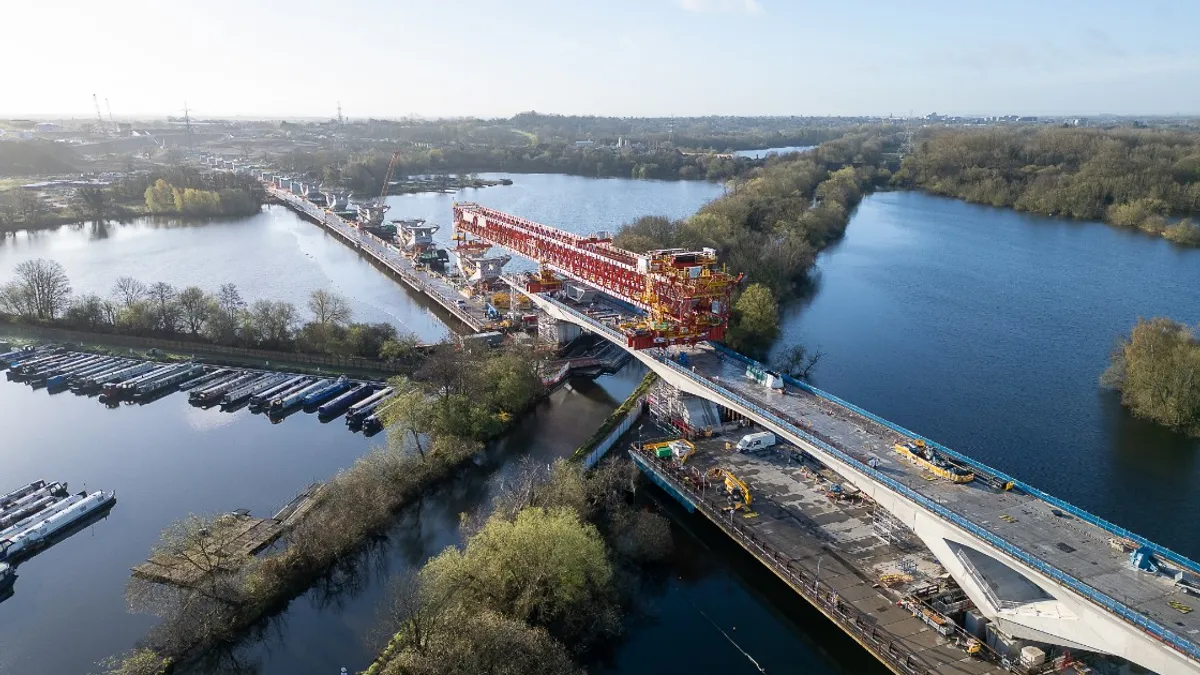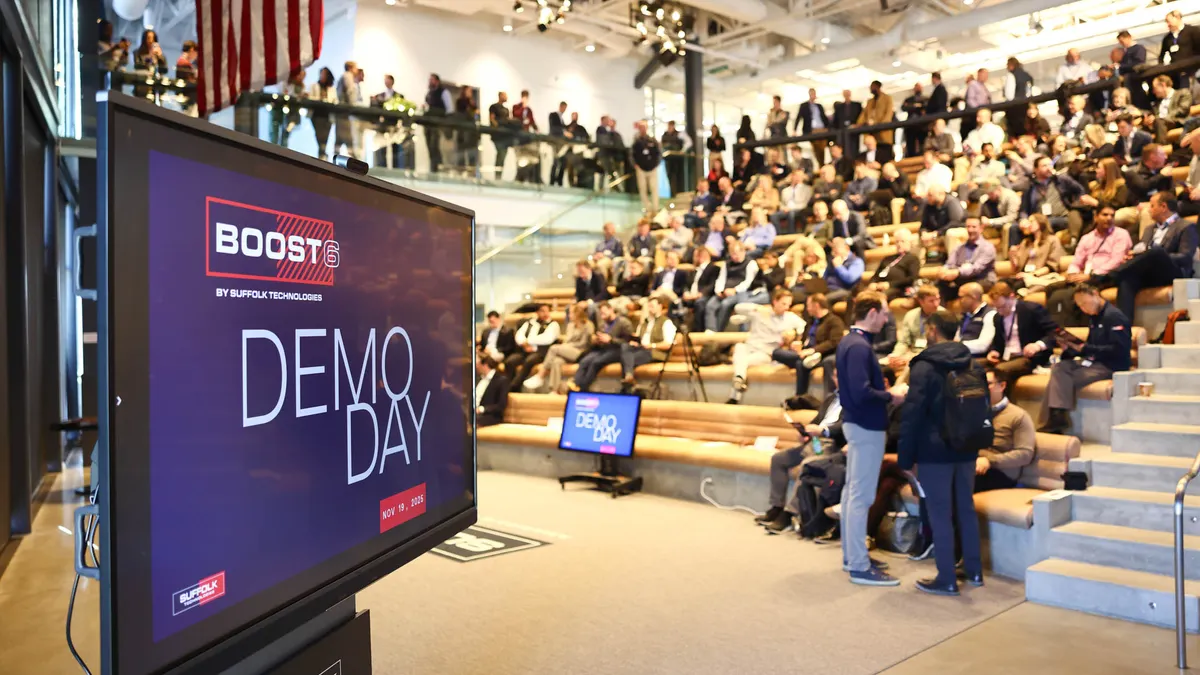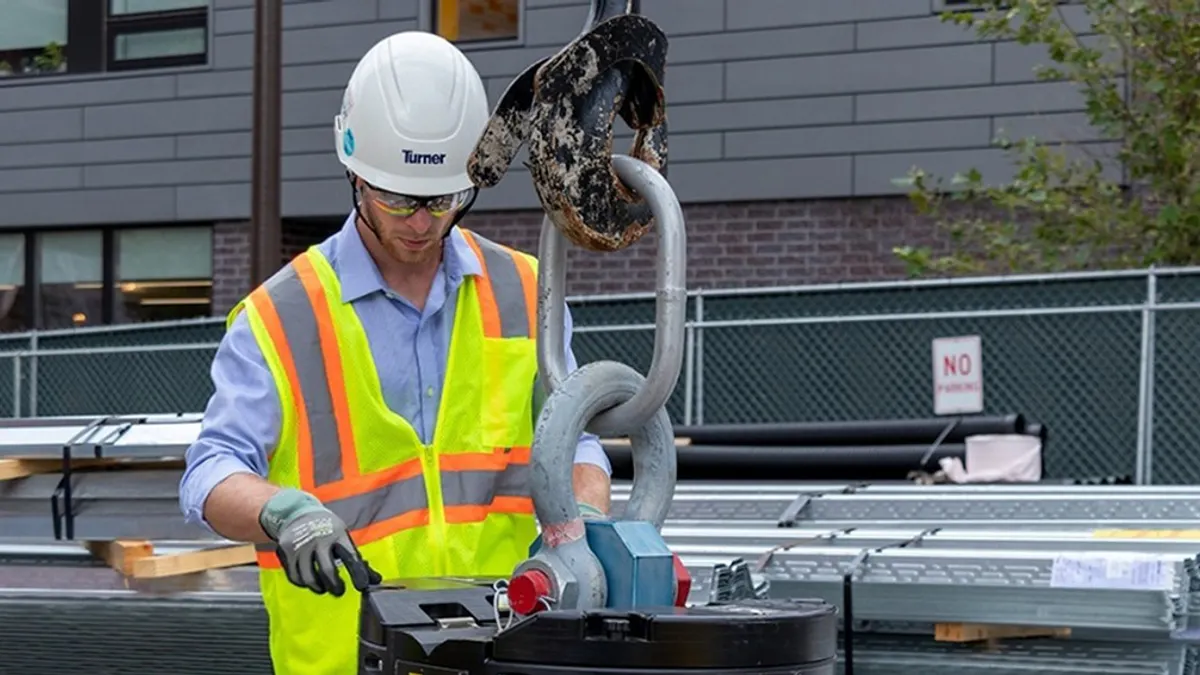A journalism degree isn’t the typical precursor to a career in homebuilding. But for Pierrette Tierney-Magleby, 37, who earned a master’s degree in journalism from the University of Southern California and worked for CNN’s London bureau, it was an unexpected launching point.
"I definitely was in the right places at the right times," said Tierney-Magleby, who joined Lindon, UT-based custom homebuilder Magleby Construction as vice president of business development in August after serving as division president in Taylor Morrison’s San Francisco Bay Area office and in other roles at that company and Pulte Homes since June 2004.
At Design and Construction Week in Orlando, FL, we sat down with Tierney-Magleby to discuss her path from media to homebuilding, how starting off in a down market gave her perspective, and advice for young professionals seeking a career in the industry.
Editor's note: This interview has been edited and condensed.
How did you get from journalism to where you are today?
TIERNEY-MAGLEBY: While I was in London, the Iraq War broke out. I wanted to have a family at some point, and I wasn’t sure I was ready to jump right into war coverage. So I came back to Los Angeles and worked for a couple of local news stations. A friend who worked at Pulte Homes encouraged me to listen to their recruiting pitch. It seemed interesting. I didn't have anything tying me down to California or my career at that point, so I went for it and moved to Las Vegas and started working at Pulte. I really enjoyed it. I liked the diversity in what I got to do every day. I moved into management positions very rapidly and so it just sort of sucked me in.
What’s kept you in the homebuilding industry?
TIERNEY-MAGLEBY: One thing was my ability to progress in my career as quickly as I did. I had some phenomenal mentors. I met my husband in homebuilding, and so we both have this common interest. Journalism is something that I still find interesting. I’m able to do a lot of the public relations and interviews, taking some of those skills that I learned in journalism and using them through the homebuilding forum.
You entered the industry right as Pulte cut its pricing in the Las Vegas market, and witnessed the downturn nationwide over the next few years. How did that impact your perspective?
TIERNEY-MAGLEBY: By the time I got to Las Vegas, the wheels were starting to fall off that market and then it really crashed. Then, I moved to Phoenix, which was about eight months behind the Vegas market and I got to experience it all over again. It kept you humble. There were so many builders that got this sense of entitlement, but the reality is that good times float all boats.
That downturn hurt. I was 25 and I was having to lay off people who were in the industry longer than I had been alive. It gave me a perspective on how cyclical the industry is. It made me extremely cautious and conservative in my hiring decisions and maybe some of my growth anticipation. I was willing to take on more work and stretch myself more thin versus hiring a bunch of people that I was afraid I was going to have to let go. That gave me a great basis to be protective and care about the people I worked with.
Due to the fact that you came from outside the business, do you look to other fields when recruiting today?
TIERNEY-MAGLEBY: One of the things that has allowed me to be a pretty successful leader in homebuilding is that I am very open-minded about who I look to hire and recruit. One of the biggest challenges we have right now in construction is talent. It helped me recognize that I didn’t have to only hire people with construction management degrees. I’ve found people at Nordstrom who I thought were fantastic at customer service and had personality types that I would look to hire, so I'd tell them about our industry and try to bring them in and educate them on it.
When you find the right personality type, somebody who’s got the right work ethic, the right integrity and the right interest in learning a company and proving themselves and learning and growing, you can train them on the construction side or the real estate side or whatever it is within the organization.
You recently transitioned from a leadership role at a public builder, Taylor Morrison, to one at a smaller, custom builder, Magleby Construction. What has that transition been like?
TIERNEY-MAGLEBY: Regardless of the market, with a larger production homebuilder you have a large infrastructure around you. It felt more like a corporation, whether that was access to an abundance of resources or large-scale teams with various skill sets and roles. Now, having come into the custom world, it’s very relationship-based. It’s a hands-on, boots-to-the-ground kind of mentality. It’s gotten me back to the roots of being very entrepreneurial, using the knowledge and skills that I learned in 12 years of working at a large, publicly traded company and now applying it to your smaller family business where you feel like you’re really invested.
Was that a challenge at first?
TIERNEY-MAGLEBY: It definitely comes with its challenges, relearning some skills that I had at one point in my career but have moved up the chain and have gotten further away from actually doing the work. The divide between the production builder world and the custom builder world is night and day. For me, it’s been fun to educate myself on the products and building science that we’re putting into these homes that, a lot of times, get value-engineered out of the production models because you’re trying to drive a certain price per square foot, whereas on the custom side, it’s whatever the buyer can dream and wants, we figure out how to build. And with a family business, how do you maximize the resources that you have? How do you encourage new people that aren’t part of the family but get them to feel like they are? It’s all about that culture that you can build.
How does Magleby do that?
TIERNEY-MAGLEBY: The scale is very different from my previous experience, but they have ongoing training programs for all new hires and they send team members out to events [like Design and Construction Week]. We have scholarship programs to help our employees get their Master of Business Administration or construction management degrees. It’s been exciting to see the level of commitment they have to their employees. It speaks volumes that we have at least 10 to 15 people who have been with the company for more than 20 years. They may not have the Magleby name, but they are part of the Magleby family.
What are some of the challenges ahead facing Magleby and the industry at large?
TIERNEY-MAGLEBY: The labor shortage is going to be continually challenging for all builders, all trades. Magleby has been doing some things internally around vertical integration to safeguard ourselves. We have our own cabinet and mill shop and excavation teams — the things we are struggling to control when subbing them out we’ve tried to bring in-house. We also bring in interested high school students and get them interested [in some of the trades] and hopefully buy that loyalty to stay with us.
At Magleby, we are heavily Mormon-based, so a lot of our employees speak foreign languages and have served missions in other countries. Tapping into that resource, we have a handful of guys on our team that speak Spanish fluently, and so we’re working on recruiting programs for people who could come to the U.S. legally to work.
Having worked under Sheryl Palmer, the current president and CEO at Taylor Morrison, and considering that you aspire to be an advocate for women in the field, what advice do you have for women or anyone else who is interested in a career in homebuilding?
TIERNEY-MAGLEBY: Find mentors and role models that will truly help to support you. There are a lot of homebuilding businesses that are like, 'Oh, we have a diversity panel,' and build these little [groups], but they are not really invested in that personal touch. I had phenomenal role models that were females but I also had phenomenal role models that were males who were excited about introducing a different opinion into their leadership group and recognized that what I brought to the table was going to be unique and different and help them question things in a new way.
You do have to be pretty self-confident, you have to have a pretty thick skin. You need to be able to go in and hang out with the construction guys and not get easily offended. If you’ve got that base level of confidence, then the next key is finding role models to guide you through.
On the flip side, is there anything those 'construction guys' can do to be more receptive?
TIERNEY-MAGLEBY: A couple of those male role models would come to me and ask my opinion in a meeting setting where I was going to be the only female in the room, knowing that it might be an intimidating situation for me and that I may not just raise my hand and speak up voluntarily. Additionally, when you look at the changing consumer demographic, making sure we’re adding leadership to our teams that [represents] our consumer, or we’re going to miss the mark.





















